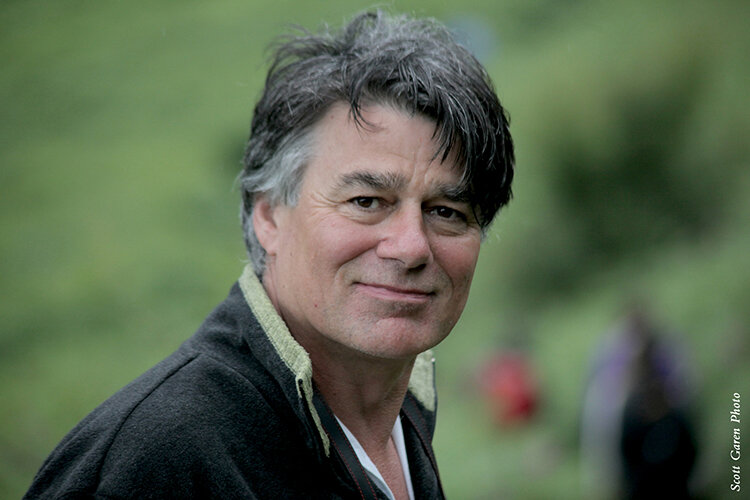SOLACE
The following essay is from Consolations, a new book by David Whyte. David is a poet, speaker, and teacher who brings profound insight to our understanding of the nature of individual and organizational change, particularly through his unique perspective on Conversational Leadership. David’s work remarkably creates a bridge between the worlds of psychology, philosophy, creativity, and vocation.
Solace
is the art of asking the beautiful question, of ourselves, of our world or of one another, in fiercely difficult and un-beautiful moments. Solace is what we must look for when the mind cannot bear the pain, the loss or the suffering that eventually touches every life and every endeavor; when longing does not come to fruition in a form we can recognize, when people we know and love disappear, when hope must take a different form than the one we have shaped for it.
Solace is the beautiful, imaginative home we make where disappointment can go to be rehabilitated. When life does not in any way add up, we must turn to the part of us that has never wanted a life of simple calculation. Solace is found in allowing the body’s innate wisdom to come to the fore, the part of us that already knows it is mortal and must take its leave like everything else, and leading us, when the mind cannot bear what it is seeing or hearing, to the birdsong in the tree above our heads, even as we are being told of death, each note an essence of morning and mourning; of the current of a life moving on, but somehow, also, and most beautifully, carrying, bearing, and even celebrating the life we have just lost. A life we could not see or appreciate until it was taken from us. To be consoled is to be invited onto the terrible ground of beauty upon which our inevitable disappearance stands, to a voice that does not soothe falsely, but touches the epicenter of our pain or articulates the essence of our loss, and then emancipates us into both life and death as an equal birthright.
Solace is not an evasion, nor a cure for our suffering, nor a made up state of mind. Solace is a direct seeing and participation; a celebration of the beautiful coming and going, appearance and disappearance of which we have always been a part. Solace is not meant to be an answer, but an invitation, through the door of pain and difficulty, the depth of suffering and simultaneous beauty in the world that the strategic mind by itself cannot grasp nor make sense of.
To look for solace is to learn to ask fiercer and more exquisitely pointed questions, questions that reshape our identities and our bodies and our relation to others. Standing in loss but not overwhelmed by it, we become useful and generous and compassionate and even amusing companions for others. But solace also asks us very direct and forceful questions. Firstly, how will you bear the inevitable that is coming to you? And how will you endure it through the years? And above all, how will you shape a life equal to and as beautiful and as astonishing as a world that can birth you, bring you into the light and then just as you are beginning to understand it, take you away?

